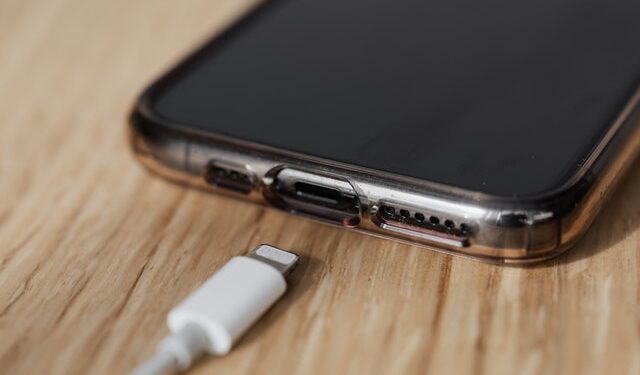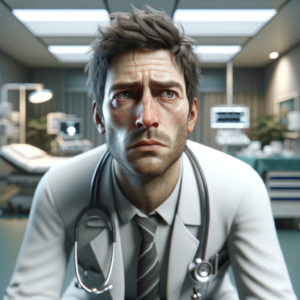
The etiology of physician burnout (Part 2)
In Part 2 of this series, we will look at further at the etiology of physician burnout, specifically the roles of medical training and leadership.

In Part 2 of this series, we will look at further at the etiology of physician burnout, specifically the roles of medical training and leadership.

The epidemic of burnout among physicians and other healthcare professionals is here and it ain’t going away (yet). This article explores the key underlying causes of physician burnout and moral injury.

Physician Poetry: How To Be a Good Doctor On a Very Bad Day. The writer beautifully articulates the quiet suffering so many of us endure—the shame, the imposter syndrome of self-doubt, and the silent suffering and unnecessary isolation that comes with the weight of our responsibilities and our toxic medical system.

This poem, The Human Conundrum, explores the emptiness of consumerism and the need for deeper fulfillment through creativity, community, and connection with nature. It highlights the damage inflicted on the planet due to overconsumption while offering hope through imagination, unity, and action.

This article explores the thorny issue of physician burnout vs depression, attempting to tease out the similarities and differences.

By the time we are finished our medical training, it’s too late. We have already absorbed or been infused with years of culture, tradition, attitude, and approaches to mental health. These attitudes are towards ourselves, our colleagues, and our patients. If we are to change the culture around physician mental health, we need to start with the doctors of tomorrow. Medical schools have a key role in tackling medical student mental health. And they should start yesterday.

Practicing medicine is making us physicians sick. Physicians in the US have some of the highest burnout, mental illness, addiction, and suicide rates in the world. Medical student and physician burnout and suicide are a “silent epidemic”.

Modern medicine is no stranger to the toxic trio of burnout, stress, and dissatisfaction, and perfectionism plays the role of the puppet master. It’s time to swap the scalpel for a mirror and reflect. Bowlby’s framework challenges physicians to redefine excellence, shifting from unattainable perfection to a sustainable “good enough” approach.

My biggest fear in medicine is messing up. Inevitably, it happens. And while we rightly are trained to reflect, detect and learn from errors, improve practice, and ultimately save lives, the flip side – the cost of excessive perfectionism – can be very high, especially on physician well-being.

Behind the crisp white coats and stethoscopes, there lies a silent majority—physicians who are silently suffering from the immense pressures of their profession — and barriers to help.

In Part 2, guest writer Dr Bryce Bowers has to move from losing a young patient under tragic circumstances onto another young patient without a moment to breathe.

“Trauma 1!” I heard them yell. “Let’s go! Let’s go!”
I stood. Frozen. Trying to process all that was going on.
Then I felt a large palm on the upper part of my back.
“Come on, kid. It’s your time to shine”.

The demanding nature of modern medicine places physicians under significant stress and strain, prompting a growing interest in the benefits of therapy to help them navigate the complexities of their profession. Engaging in proactive therapy can offer physicians a unique opportunity to enhance their insight, manage stress, and foster emotional well-being. However, like any intervention, it comes with its own set of advantages and disadvantages.

“Physician heal thyself,” says the aphorism. By extension, we could also say, “Physician know thyself”. Understanding one’s priorities is a crucial aspect of personal development. Here are five self-help exercises, including the obituary/eulogy exercise, to help individuals gain clarity on their priorities:

So the new year is near, and physicians everywhere are planning to make 2024 an even better one. Our intentions may be to engage in more self-care, develop a better LIFE-work-balance, and learn about ourselves in an “examined life”. In this context, the debate between therapy and coaching for physicians takes center stage, raising important questions about the most suitable approach for addressing the unique challenges faced by medical professionals.

As a trained psychiatrist, workaholic, depressive, and (formerly) excellent clinician, I’ve come to the following maxim with apologies to REM: “Everybody needs a little therapy (sometimes)”. As the year winds down and the nights draw in, we are taking time to reflect on 2023. Over the next weeks over the Holidays and after we ring in the new year, Physicians Anonymous will be publishing a series on self-examination.

We’ve achieved a TON in 2023, especially as we are self-funded and run by volunteers. So from 2024- HOW do we reach the suffering physician? How do we let our colleagues know that there is a safe place where they can be human first, healer second? Where they will not be judged, but they will be heard and loved. Where we can laugh and cry together bonded by the commonality of being wounded healers.

Unlike overt resignations, quiet quitting manifests as a subtle withdrawal, marked by disengagement and diminished job satisfaction. To effectively address this issue, it is imperative to delve into the scale of the problem, understand the causes behind this quiet exodus, and propose actionable solutions tailored to mitigate its impact.

As I sit down to reflect on my decision to quit a toxic hospital workplace, I’m overwhelmed by a mix of emotions – relief, anger, and sadness. Leaving a career I had worked so hard for, after just three years as an attending physician, was not an easy choice.

I had lots of ideas about the root causes of my burnout and how my institution could address them. Don’t tell me to take a yoga class, fix the damn EMR!

Burnout almost led me to take my own life. It destroyed my identity as a surgeon. My medical identity and my life were so enmeshed that losing medicine caused me to mourn my own death. From this low point, I have rebuilt. With lots of intensive therapy, and regular mindfulness and other wellness practices I’ve been able to rise from the depths.